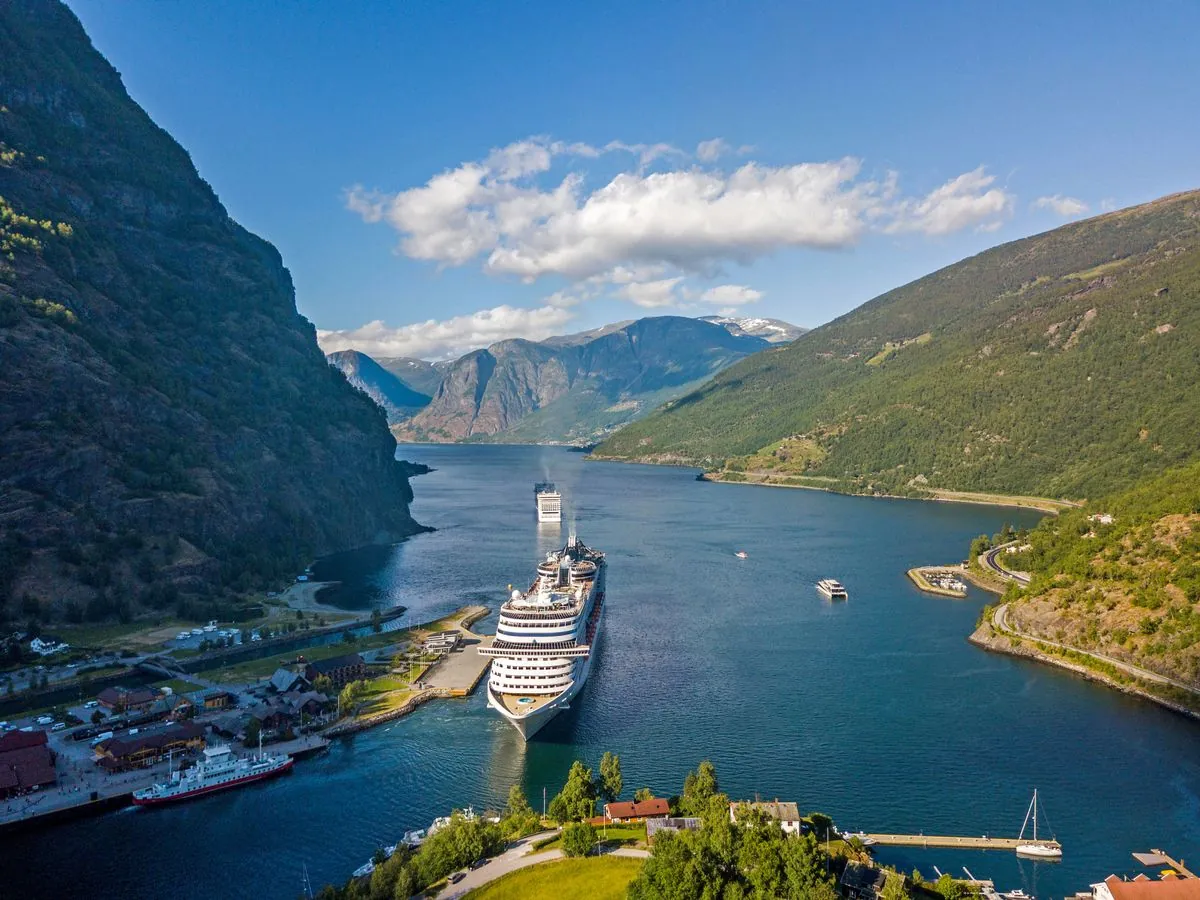Southern Water's Norwegian Fjord Plan to Combat Drought
Southern Water proposes importing Norwegian fjord water to address potential shortages. The plan, coupled with a 44% bill increase, aims to enhance water resilience amid environmental concerns and recent supply challenges.

Southern Water has devised an innovative contingency plan to address potential water shortages by importing water from Norwegian fjords. This unprecedented move comes as the company, serving 4.7 million customers, faces increasing pressure to ensure water security in the face of environmental challenges and recent supply issues.
The proposal involves shipping 45 million liters of glacial water daily for six weeks from Scandinavia to Southampton. This plan highlights the growing concerns about water scarcity in the UK, particularly in light of recent extreme weather events. In the summer of 2022, just two years ago, parts of England came perilously close to exhausting their water supplies, with Thames Water nearly depleting its storage within three and a half weeks.

To fund this ambitious project and other infrastructure improvements, Southern Water has sought approval from Ofwat, the water sector regulator, to increase customer bills by 44% over the next five years starting April 2025. This significant hike has sparked debates about the balance between necessary upgrades and consumer affordability.
The company has entered discussions with the UK private firm Extreme Drought Resilience Service to facilitate the water importation plan. Meanwhile, the Environment Agency is liaising with Norwegian regulators to ensure compliance with international standards and environmental regulations.
Environmental concerns play a crucial role in this decision. The agency has previously warned that Southern Water's heavy reliance on freshwater sources, particularly groundwater and chalk streams, has left the region more vulnerable to droughts. Currently, nearly 70% of the company's water supply is extracted from these sensitive ecosystems.
"This is a last-resort contingency measure that would only be used for a short period in the event of an extreme-drought emergency."
Southern Water is not solely relying on water importation as a solution. The company is actively working to reduce its dependence on chalk streams and is investing in new infrastructure projects. One such initiative is the Havant Thicket reservoir in Hampshire, slated to begin operations in 2034, which aims to store about 8.7 billion liters of water.
It's worth noting that Southern Water has faced significant challenges in recent years. In 2021, the company received a record £90 million fine for sewage pollution, pushing it to the brink of financial collapse. Subsequently, Macquarie, an Australian investment manager, took over the company to stabilize its operations.
The UK water industry, privatized in 1989, has been under increasing scrutiny to improve infrastructure and environmental performance. Water companies in England and Wales collectively invest approximately £8 billion annually in infrastructure improvements. However, the UK's water network, spanning over 346,000 km of water mains, requires constant maintenance and upgrades to meet growing demands and environmental standards.
As climate change continues to impact weather patterns, the frequency and severity of droughts in the UK are expected to increase. This makes innovative solutions like Southern Water's Norwegian fjord plan increasingly relevant. However, it also raises questions about long-term sustainability and the need for more localized water management strategies.
While importing water is not a new concept globally, with countries like Singapore having done so for decades, it represents a significant shift in UK water management practices. Alternative solutions, such as desalination, are being explored, but they come with their own challenges, including high energy consumption and costs.
As the UK grapples with these water security issues, it's clear that a multi-faceted approach involving infrastructure investment, conservation efforts, and innovative solutions will be necessary to ensure a sustainable water future for the nation.


































